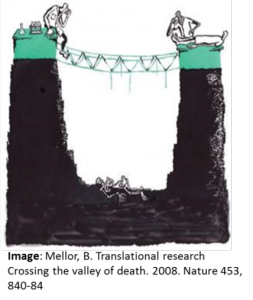 The Translational Cancer Research Course, co-hosted by ICGEB (International Centre for Genetic Engineering and Biotechnology) and the Cancer Research Initiative (CRI), emphasised the need to develop an integrated approach to address the burden of cancer. During the week long course, which was held at the Protea Breakwater Lodge Hotel in Cape Town from 12-16 October 2015, participants gained a unique perspective and background knowledge of the disease from leading scientists in academia and industry, clinicians, and public health specialists.
The Translational Cancer Research Course, co-hosted by ICGEB (International Centre for Genetic Engineering and Biotechnology) and the Cancer Research Initiative (CRI), emphasised the need to develop an integrated approach to address the burden of cancer. During the week long course, which was held at the Protea Breakwater Lodge Hotel in Cape Town from 12-16 October 2015, participants gained a unique perspective and background knowledge of the disease from leading scientists in academia and industry, clinicians, and public health specialists.
During the course, I was particularly fortunate to have the opportunity to engage with emerging cancer researchers from South Africa, India, Iran, Kenya, Libya, Mauritius, Sri Lanka, Sudan, Zambia and Australia.
In my view, incentivising collaborative research will assist in bringing the gap between bench and bedside. Most of the participants I spoke to agree that institutions should do more to promote and incorporate translational research into the training of students.
The CRI has used seed funding to incentivize researchers to work together. Essentially this is a competitive award that has been given to groups of researchers, where the research team includes researchers from more than one scientific domain (from basic, clinical or public health disciplines). It enables the team to collect pilot data for use in applying for larger interdisciplinary grants.
Any ideas on how else can we promote interdisciplinary translational research? What did you think of the course?
I look forward to hearing from you.
Vedantha Singh- Cancer Research Initiative
Delegates from the Translation Cancer Course 2015


I was privileged to attend this course and many of the lectures were quite insightful. An important armamentarium of the 21st century researcher is collaboration. There is an urgent need to improve our research outreach and mentor upcoming cancer researchers. No doubt, cancer is becoming a pandemic globally and more so in Africa (even in the face of poverty). It is widely know that Low and middle income countries (LMIC) only receive about 5% of the global spend on cancer, albeit they carry 80% of the cancer burden leading to what is know as the 5:80 cancer disequilibrium (Knaul et al 2013). Unfortunately, many bright cancer research ideas never makes it to clinical application due various forms of intrinsic and extrinsic constraints. An important take home from the meeting for me is that many basic cancer research efforts would only end up as mere academic exercise if we do not bridge the lab-clinic gap. There has to be a good covalent interaction between both parties to foster the agenda of transdisciplinary team science. Another interesting talk was about inspirational rather than coercive leadership. Without doubt, we need great and vibrant leadership in science and medicine to make meaningful achievements. Overall the meeting was a huge success, the venue was perfect (close to V&A waterfront) and the organization was outstanding. A big thumbs up to Professor Luiz Zerbini and Jennifer Moodley….and to me for taking out time to comment on this blog… :)!
Totally agree. Well done to Dr Adeola for taking time to post.